Broccoli 101: An Overview
Broccoli is a cruciferous vegetable that belongs to the Brassicaceae family, which includes other nutritious vegetables like kale, cauliflower, and Brussels sprouts. It is known for its green tree-like appearance and has become increasingly popular in recent years due to its numerous health benefits.
Broccoli is one of the most nutrient-dense foods available, packed full of vitamins, minerals, and antioxidants that are essential for maintaining good health. It is rich in vitamin C, vitamin K, folate, and potassium, as well as dietary fiber, which is important for maintaining a healthy digestive system.

- Broccoli is also a good source of plant-based protein, making it an excellent choice for those following a vegetarian or vegan diet.
- It is low in calories, making it an ideal food for weight loss and weight management.
- Broccoli contains compounds called glucosinolates, which have been shown to have anti-cancer properties.
- It is also rich in sulforaphane, a compound that has been linked to a reduced risk of heart disease and improving overall heart health.
When it comes to preparing broccoli, there are many ways to enjoy this healthy vegetable. It can be steamed, boiled, roasted, grilled, or sautéed, and it can be eaten raw in salads or used as a healthy snack with dips like hummus or tzatziki.
| Nutrient | Amount per 100g |
|---|---|
| Calories | 34 |
| Protein | 2.8g |
| Fat | 0.4g |
| Carbohydrates | 6.4g |
| Dietary Fiber | 2.6g |
When buying and storing broccoli, it is important to choose heads that are firm, compact, and have a uniform green color. Avoid broccoli with yellow flowers or large blemishes. To retain its nutritional value, broccoli should be stored in the refrigerator in a sealed plastic bag and used within 3-5 days of purchase.
In conclusion, broccoli is a highly nutritious vegetable that offers numerous health benefits. It is versatile and easy to prepare, making it an ideal addition to any diet. By incorporating broccoli into your meals regularly, you can ensure that you are getting the vitamins, minerals, and antioxidants that your body needs to stay healthy and strong.
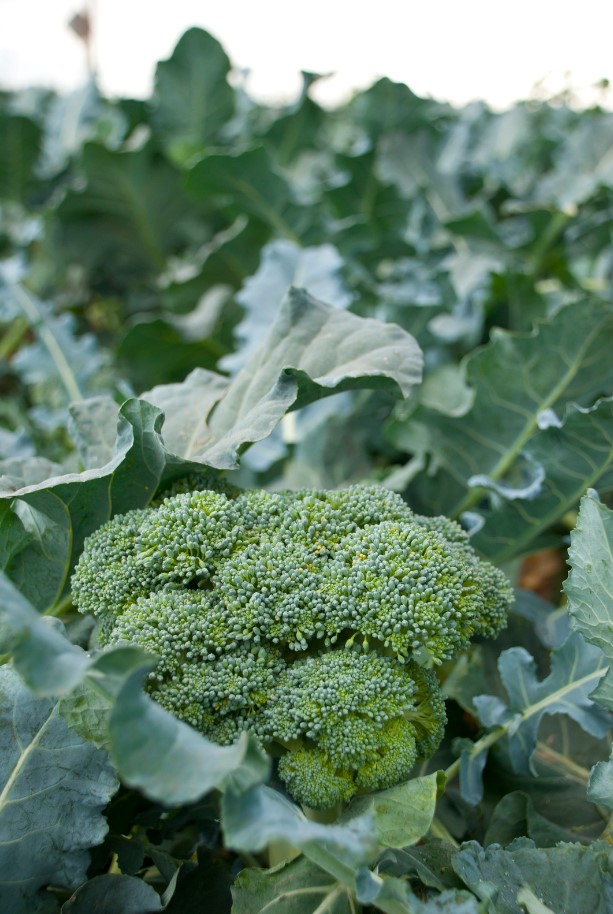
Nutritional Profile Of Broccoli
Broccoli, also known as ‘little trees’, is a cruciferous vegetable that belongs to the cabbage family. It is native to Italy and has been consumed for centuries due to its numerous health benefits. This nutrient-dense vegetable is an excellent source of vitamins, minerals, and fiber that can help you achieve and maintain optimal health.
Broccoli is packed with phytochemicals, which are natural compounds that have been found to have health-promoting properties. One of the most important phytochemicals in broccoli is sulforaphane, which has been shown to have anti-inflammatory, anti-cancer, and anti-diabetic properties.
- Vitamins: Broccoli is an excellent source of vitamins C and K. One cup of cooked broccoli contains more than 200% of your daily recommended intake of vitamin C, which is essential for a healthy immune system. Vitamin K is important for bone health and blood clotting.
- Minerals: Broccoli is also rich in minerals such as potassium, calcium, and iron. These minerals are important for various bodily functions such as muscle and nerve function, blood pressure regulation, and oxygen transport in the body.
- Fiber: Broccoli is high in fiber, which is important for a healthy digestive system. Fiber helps to prevent constipation, reduces the risk of colon cancer, and helps to maintain a healthy weight.
In addition to its impressive nutritional profile, broccoli is low in calories, making it an excellent food to incorporate into a healthy diet. Eating broccoli regularly can help to reduce the risk of chronic diseases such as heart disease, diabetes, and cancer.
| Nutrient | Amount per 1 cup (91g) cooked | % Daily Value |
|---|---|---|
| Calories | 55 | 3% |
| Protein | 4g | 8% |
| Carbohydrates | 12g | 4% |
| Fiber | 5g | 20% |
| Vitamin C | 135mg | 225% |
| Vitamin K | 116mcg | 145% |
| Potassium | 530mg | 15% |
| Calcium | 62mg | 6% |
| Iron | 1mg | 5% |
In conclusion, broccoli is a cruciferous vegetable that is packed with important nutrients that are essential for good health. Incorporating broccoli into your diet is an excellent way to improve your overall health and reduce the risk of chronic diseases.
Health Benefits Of Eating Broccoli Regularly
Eating a well-balanced diet is important for our overall health and well-being. One vegetable that should definitely be included in your diet is broccoli. It’s not only delicious but also packed with essential nutrients that offer a variety of health benefits. Here are just a few reasons why you should consider incorporating broccoli into your diet on a regular basis.
- Rich in Nutrients: Broccoli is an excellent source of important vitamins and minerals such as Vitamin C, Vitamin K, folate, potassium, and fiber.
- Boosts Immune System: The high levels of Vitamin C in broccoli help to strengthen the immune system, making it more resistant to infection and disease.
- Supports Digestive Health: Broccoli is rich in fiber which helps to promote bowel regularity and can also reduce the risk of colorectal cancer.
- May Help Prevent Cancer: Research has shown that broccoli contains compounds that may help to prevent different types of cancer such as breast, lung, and prostate cancer.
By eating broccoli regularly, you are providing your body with essential nutrients that can help to improve your overall health and well-being. So make sure to add this delicious and nutritious vegetable to your diet today!
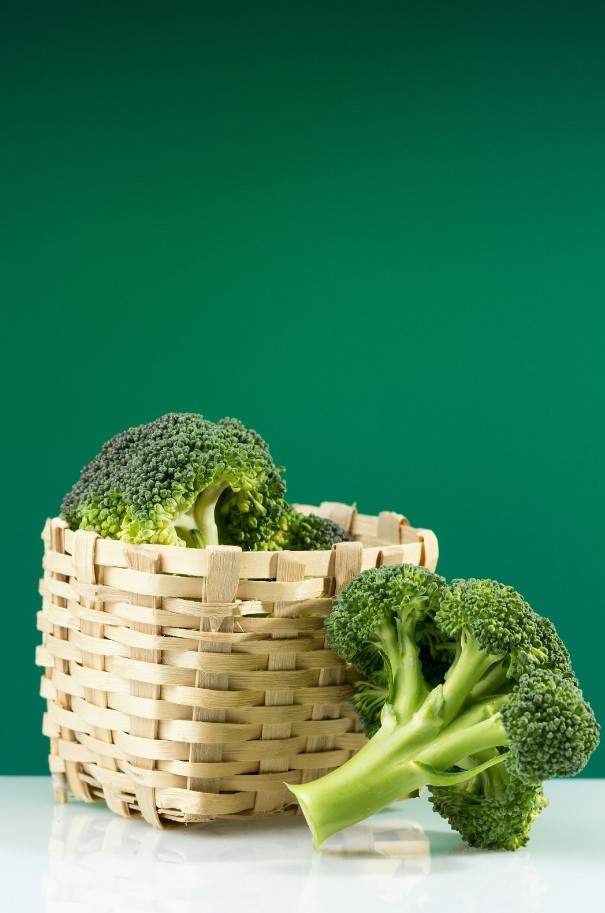
Reasons Why Broccoli Should Be A Part Of Your Diet
Broccoli: A Crucial Part of Your Diet
Broccoli is a vegetable loaded with essential vitamins and minerals that are crucial for our health. This green wonder is a member of the cruciferous vegetable family and is packed with fiber, protein, and antioxidants. Eating broccoli regularly can help us maintain a healthy weight, promote healthy digestion, and keep our heart healthy.
- Broccoli Protects Against Cancer: Broccoli is rich in sulforaphane, a natural compound that has been shown to have anti-cancer properties. Studies have found that sulforaphane can help reduce the risk of various types of cancer, including breast, prostate, lung, and colon cancer.
- Broccoli Boosts Our Immune System: Broccoli is a rich source of vitamins C and E, which are essential for maintaining a healthy immune system. These vitamins stimulate the production of white blood cells, which help fight off infections and diseases.
- Broccoli Promotes Heart Health: Broccoli contains sulforaphane and other antioxidants, which help reduce inflammation in our bodies. This, in turn, helps lower our risk of heart disease and stroke.
- Broccoli Helps Regulate Blood Sugar: Broccoli is high in fiber, which slows down the absorption of sugar in our bloodstream. This helps regulate our blood sugar levels and prevents spikes that can lead to diabetes.
In conclusion, broccoli is a vegetable that should be incorporated into one’s diet for numerous health benefits. It is a versatile ingredient, and can be roasted, steamed, or sautéed. The next time you’re at the grocery store or farmer’s market, pick up some broccoli and give your body the essential nutrients it needs.
The Connection Between Broccoli And Cancer Prevention
Broccoli is a cruciferous vegetable that is known for its numerous health benefits. One of the most important benefits of broccoli is its ability to prevent cancer. This is due to the presence of certain compounds that have been shown to inhibit the growth of cancer cells in the body.
One of these compounds is called sulforaphane. This compound has been shown to activate a specific set of genes in the body that are responsible for fighting cancer cells. Studies have found that sulforaphane can inhibit the growth of breast, prostate, colon, and lung cancer cells.
- Another compound found in broccoli is indole-3-carbinol. This compound has been shown to help the body detoxify harmful substances, including carcinogens. By helping the body eliminate these harmful substances, indole-3-carbinol can reduce the risk of cancer.
- Additionally, broccoli is high in antioxidants such as vitamin C, beta-carotene, and quercetin. These antioxidants protect the body from damage caused by free radicals, which can contribute to the development of cancer.
Studies have also found that broccoli consumption is associated with a reduced risk of certain types of cancer. For example, one study found that women who ate more broccoli had a lower risk of developing breast cancer than those who ate less. Another study found that men who consumed more cruciferous vegetables, including broccoli, had a lower risk of prostate cancer.
| Types | Amounts |
|---|---|
| Sulforaphane | Up To 2.5mg/100g |
| Indole-3-Carbinol | 12-50mg/100g |
| Vitamin C | 89.2mg/100g |
| Beta-Carotene | 0.8mg/100g |
Despite the numerous benefits of broccoli, it is important to note that consuming large amounts of it may have some side effects. These include bloating, gas, and diarrhea. It is recommended that individuals consume broccoli in moderation, and consult with a healthcare provider if they have any concerns.
In conclusion, broccoli has numerous health benefits, including its ability to prevent cancer. Due to the presence of compounds like sulforaphane and indole-3-carbinol, as well as its high antioxidant content, broccoli can help protect the body from the development of cancer cells. By including broccoli in one’s diet, individuals can benefit from its nutritional value and cancer-fighting properties.
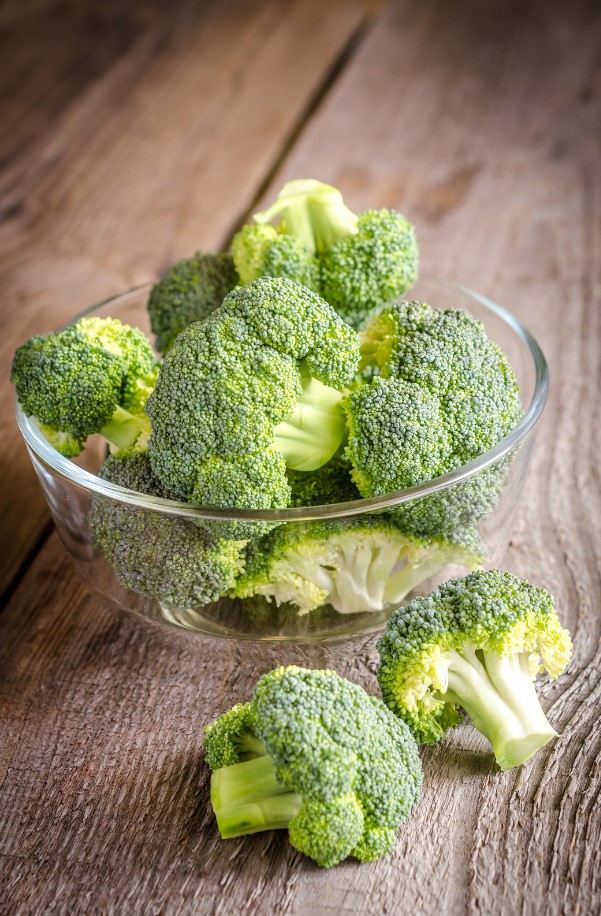
How Broccoli Helps İn Boosting Immunity
Broccoli is a popular vegetable that is often recommended by healthcare professionals due to its high nutritional value. It is a member of the cruciferous vegetable family, along with cauliflower, Brussels sprouts, and cabbage. One of the main reasons broccoli is considered a superfood is due to its ability to boost immunity.
Broccoli is packed with essential nutrients like vitamins and minerals that are necessary for a healthy immune system. It contains high levels of vitamin C, which is known to boost the production of white blood cells, the cells responsible for fighting infections in our bodies.
- Broccoli also contains beta-carotene and selenium, which helps improve the immune system’s response to infections.
- The vegetable is also a rich source of antioxidants, which prevent damage to cells and tissues by free radicals. This helps to protect the immune system from oxidative stress and strengthen its overall function.
In fact, research studies have suggested that people who consume broccoli and other cruciferous vegetables on a regular basis have a lower risk of chronic diseases like cancer, heart disease, and type 2 diabetes due to the powerful immune-boosting properties of these vegetables.
| Ways to incorporate broccoli into your diet | Serving size |
|---|---|
| Roast broccoli in the oven with some olive oil and seasoning | 1 cup |
| Add broccoli to soup or stews | 1 cup |
| Include broccoli in stir-fries or pasta dishes | 1 cup |
| Steam broccoli and serve with a dip | 1 cup |
Increasing your intake of broccoli can provide a simple and delicious way to boost your immune system and potentially reduce your risk of developing chronic diseases. The vegetable can be easily incorporated into your diet in various ways, as shown in the table above.
However, it is important to note that consuming too much broccoli can have some side effects like digestive discomfort and gas due to its high fiber content. Therefore, it is recommended to consume broccoli in moderation.
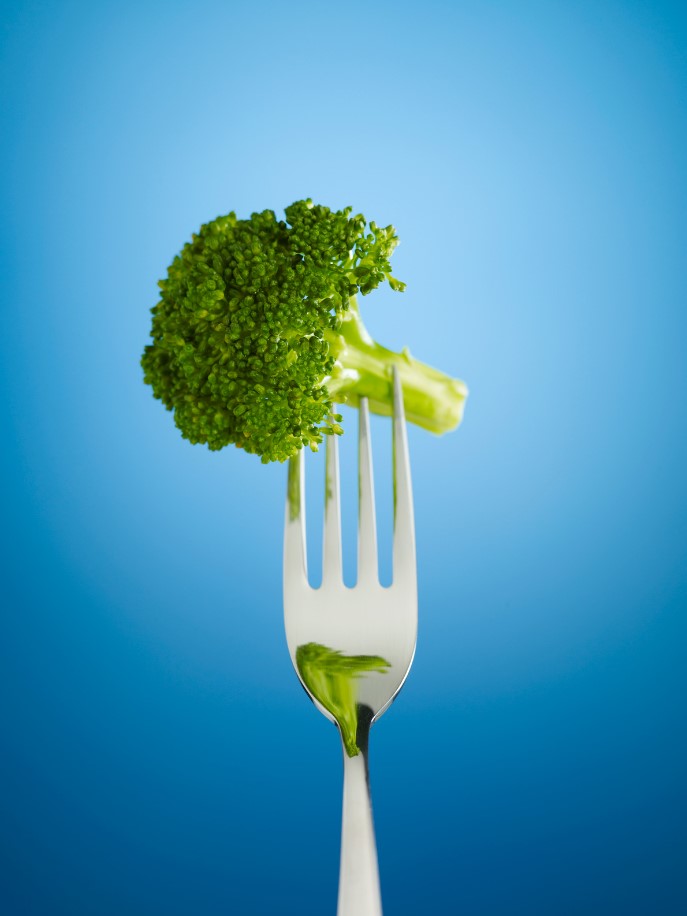
Broccoli For A Healthier Heart: A Scientific Perspective
Broccoli has long been considered a superfood due to its many health benefits, including its ability to promote heart health. As more studies are conducted, it is becoming increasingly clear that broccoli is one of the best foods to include in your diet if you want to keep your heart healthy. Here’s a closer look at the scientific evidence behind this claim.
The Nutritional Content of Broccoli
- Broccoli is an excellent source of vitamins C and K, dietary fiber, and a variety of important minerals.
- It also contains sulforaphane, which is a compound that has been linked with preventing inflammation and reducing the risk of heart disease.
Broccoli and Heart Health
- A 2010 study found that consuming broccoli was associated with a lower risk of heart disease in women.
- Another study from 2016 found that sulforaphane, the compound found in broccoli, may help protect against heart disease by reducing inflammation and oxidative stress.
- A meta-analysis of 13 studies found that people who ate more cruciferous vegetables, including broccoli, had a lower risk of heart disease.
How to Incorporate Broccoli into Your Diet
| Raw Broccoli | Cooked Broccoli |
|---|---|
| Eat as a snack with hummus or other dip | Roast in the oven with olive oil and garlic |
| Chop and add to salads | Sauté with other vegetables for a stir-fry |
| Blend into a smoothie with fruit and yogurt | Add to soups or stews for extra nutrition |
Conclusion
While there is no one magic food that can guarantee heart health, it is clear that adding more broccoli to your diet can help reduce your risk of heart disease. So the next time you’re looking for a healthy snack, reach for some broccoli florets!
Broccoli’s Role İn Controlling Blood Sugar Levels
Broccoli is a nutritious vegetable that is low in calories and high in fiber, vitamins, and minerals. It is a cruciferous vegetable, just like cabbage, cauliflower, and kale. One of the most interesting properties of broccoli is its ability to help regulate blood sugar levels.
Broccoli contains a compound called sulforaphane, which has been shown to improve glucose tolerance and decrease insulin resistance. Insulin resistance occurs when cells in the body become less responsive to the effects of insulin. This condition can lead to high blood sugar levels and is a risk factor for type 2 diabetes.
- Broccoli is an excellent source of fiber, which helps slow down the absorption of sugars in the bloodstream.
- Its high fiber content also makes you feel fuller for longer, preventing overeating and weight gain.
- Furthermore, broccoli is low in carbohydrates and has a low glycemic index, which means it doesn’t cause a rapid spike in blood sugar levels.
Several studies have linked cruciferous vegetable consumption, including broccoli, with a lower risk of type 2 diabetes. These vegetables may also have protective effects on the pancreas, the organ that produces insulin.
| Food | Glycemic Index (GI) | Portion Size |
|---|---|---|
| Broccoli | 15 | 1 cup, chopped |
| White rice | 73 | 1 cup, cooked |
| Banana | 51 | 1 medium |
It’s important to note that eating broccoli alone isn’t a magic cure for diabetes. A healthy diet and exercise routine are crucial for managing blood sugar levels and preventing complications. However, including broccoli in your diet can be a smart choice for those looking to control their blood sugar levels.
In conclusion, broccoli’s role in controlling blood sugar levels shouldn’t be overlooked. This vegetable provides numerous health benefits and is a tasty addition to many recipes. Try incorporating broccoli into your meals today and enjoy its many benefits!
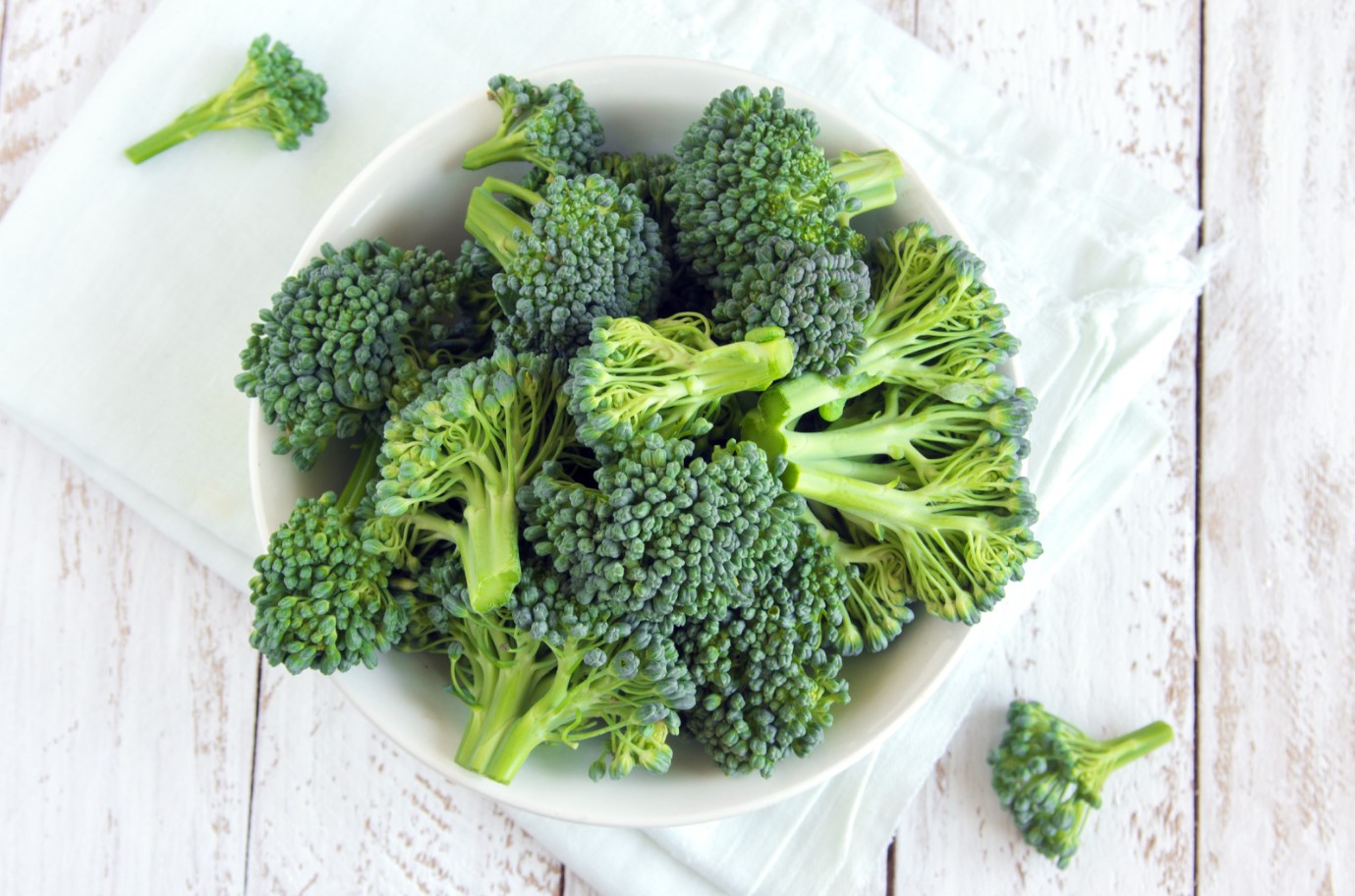
Possible Side Effects Of Consuming Broccoli
Broccoli, often touted as a “superfood,” offers a wealth of health benefits. However, as with any food, it’s important to consume broccoli in moderation, as excessively high levels of certain compounds in the vegetable may lead to some negative side effects. Here are some of the possible side effects of consuming broccoli:
- Gas and bloating: Broccoli is high in fiber, which can be difficult for some people to digest. As a result, consuming large amounts of broccoli may lead to gas and bloating.
- Thyroid problems: Broccoli contains goitrogens, substances that can interfere with the function of the thyroid gland when consumed in large amounts. Individuals with thyroid problems or those taking thyroid medication should consume broccoli in moderation.
- Interference With Blood-Thinning Medications: Broccoli contains vitamin K, which can interfere with the effectiveness of blood-thinning medications such as warfarin. Individuals taking blood-thinning medication should speak with their doctor before consuming large amounts of broccoli.
- Allergic reactions: While rare, some individuals may experience an allergic reaction to broccoli, resulting in symptoms such as hives, itching, and difficulty breathing.
Despite these potential side effects, broccoli remains a highly nutritious food and should be included as part of a balanced diet. Consuming broccoli in moderation can help provide numerous health benefits, including improved digestion, lower cholesterol levels, and reduced risk of certain cancers.
How To Buy And Store Broccoli To Retain Its Nutritional Value
Broccoli is a versatile and nutrient-rich vegetable that can be used in a number of dishes. It’s packed with vitamins, minerals, and antioxidants that can help improve overall health. However, the nutritional value of broccoli can deteriorate if it’s not stored properly or if it’s purchased incorrectly. Here are some tips on how to buy and store broccoli to retain its nutritional value:
- Look for firm, dark green heads with tightly closed buds. Avoid broccoli that has yellowing or browning florets or stems.
- If possible, choose broccoli that’s grown locally and seasonally. This ensures that the broccoli is fresh and hasn’t been transported long distances or stored for a long time.
- After purchasing, store broccoli in the refrigerator crisper drawer. It’s best to keep it in an open plastic bag or wrap it loosely in a damp paper towel to prevent moisture loss.
- Don’t wash broccoli before storing it, as this can cause it to spoil faster. Instead, wash it just before use.
By following these tips, you can ensure that your broccoli retains its nutritional value and stays fresh for longer. With proper storage, you can enjoy the many health benefits of broccoli without worrying about its quality or freshness.
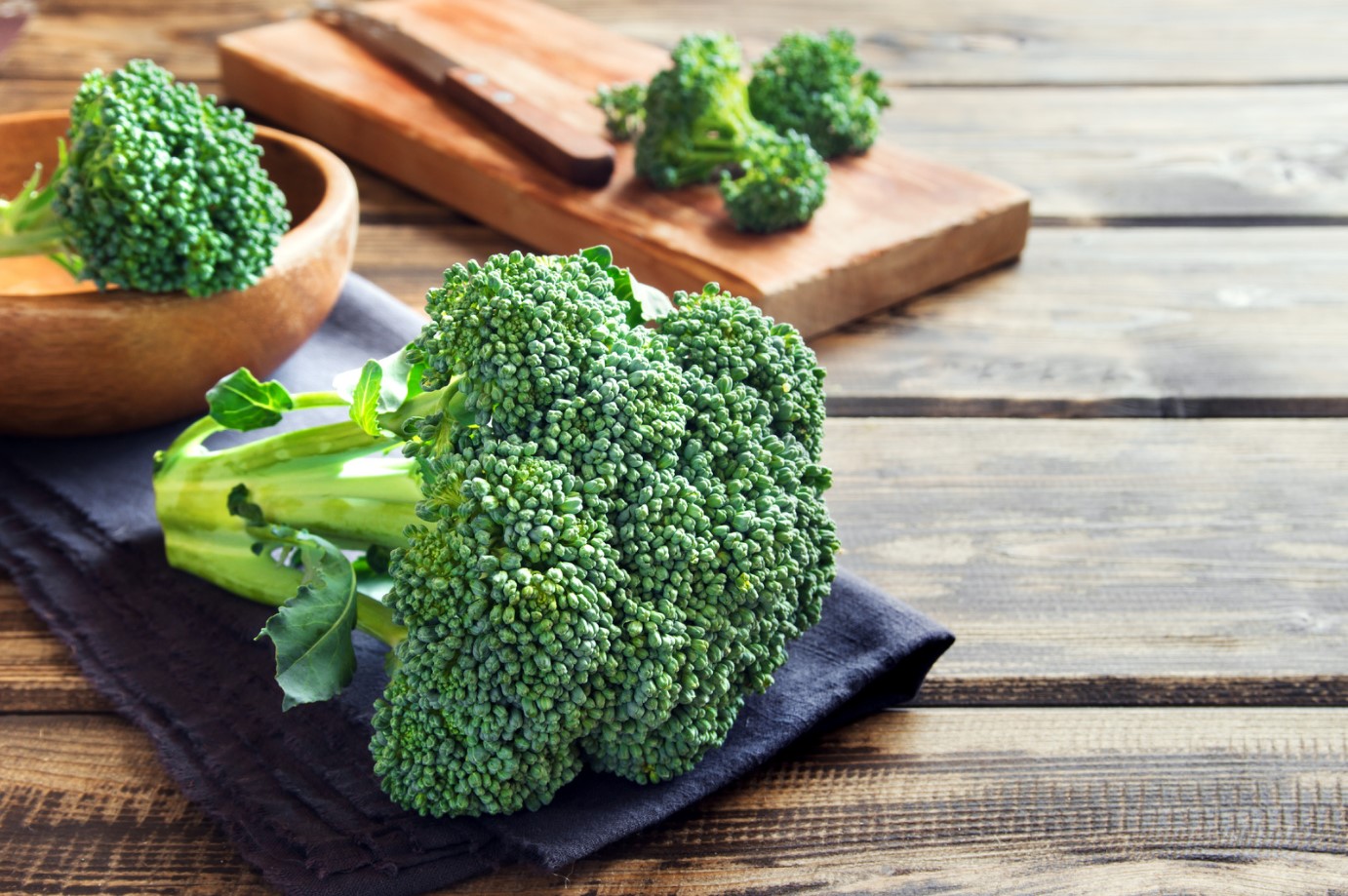
The History Of Broccoli: Origin And Evolution
Broccoli is a vegetable that has been consumed for centuries. It is believed to have originated in Italy, specifically in the Mediterranean region. Its history goes back to the Roman Empire when it was known as “Italian asparagus.” At that time, broccoli was very different from the modern-day version we know today. It had small flower heads and longer stems. In fact, it was initially cultivated for its stem and leaves, not its flower heads.
During the Middle Ages, broccoli was brought to France and eventually made its way to England in the mid-18th century. The vegetable gained popularity among the English aristocracy, and it wasn’t long before its cultivation spread across Europe and the United States.
- Broccoli is now grown all over the world, with China being the world’s top producer.
- In the United States, California produces the most broccoli, followed by Arizona and Texas.
The word “broccoli” comes from the Italian word “broccolo,” which means “cabbage sprout.” This is because broccoli is part of the cabbage family, along with cauliflower, kale, and Brussels sprouts.
- Over time, broccoli has undergone several changes in size, shape, and color.
- It wasn’t until the 1900s that the vegetable began to look like the broccoli we know and love today, with its compact and large flower heads.
Today, broccoli is loved for its numerous health benefits and is a staple in many households around the world. It is high in fiber, vitamin C, and other essential vitamins and minerals that promote good health.
| Broccoli varieties | Description |
|---|---|
| Calabrese broccoli | A variety of broccoli with large green heads, tight florets, and thick stems. |
| Rapini broccoli | A variety of broccoli that has a slightly bitter taste and long, thin stems. |
| Sprouting broccoli | A variety of broccoli that has small heads and tender stems. |
With its rich history and various health benefits, broccoli is a vegetable that has stood the test of time. Whether you like it cooked or raw, it’s a delicious and versatile addition to any meal.
How Broccoli Became One Of The Most Popular Vegetables
Broccoli, a cruciferous vegetable, has been widely accepted around the world as a nutritious and versatile addition to any diet. It is believed that broccoli originated in Italy, where it was known as “Italian asparagus” or “Broccoletto.” The vegetable has come a long way from its humble beginnings to being one of the most popular vegetables on the planet.
In the early 18th century, broccoli was introduced to England and from there it spread to the United States in the late 1800s. However, it took some time for broccoli to become popular in America. In the 1920s, Italian immigrants brought broccoli with them to the US and popularized the vegetable in areas with large Italian populations like New York City.
- It wasn’t until the 1960s that broccoli gained popularity nationwide. In 1960, an American seed company, W. Atlee Burpee & Co, began selling a new variety of broccoli called “Broccoli Waltham 29.” This variety was easier to grow, had a longer shelf life, and tasted sweeter than other broccoli varieties, which made it popular with consumers.
- The nutritional benefits of broccoli were also being discovered around this time, which added to its popularity. Broccoli is high in vitamins C and K, fiber, and antioxidants. It also contains sulforaphane, a compound that has been linked to cancer prevention.
Today, broccoli is widely available and can be found in most supermarkets and grocery stores. It is used in a variety of dishes, from soups and salads to casseroles and stir-fries. Broccoli has become a staple in many households and is enjoyed by people of all ages.
| Nutrient | Amount per 1 cup (91 grams) |
|---|---|
| Calories | 31 |
| Protein | 2.5 grams |
| Fiber | 2.4 grams |
| Carbohydrates | 6 grams |
| Sugar | 1.5 grams |
| Fat | 0.4 grams |
| Vitamin C | 135% of the Daily Value (DV) |
| Vitamin K | 116% of the DV |
Broccoli is a versatile and nutritious vegetable that has come a long way from its origins in Italy. With its many health benefits and delicious taste, broccoli has become one of the most popular vegetables in the world.
Broccoli İn Cuisine: Best Ways To Prepare And Serve It
Broccoli is a versatile vegetable that can be cooked in a variety of ways, making it a great addition to any cuisine. From steaming to grilling, broccoli can be prepared in a way that enhances its flavor and nutritional value. Here are some of the best ways to prepare and serve broccoli.
Steaming: One of the easiest and healthiest ways to prepare broccoli is by steaming it. Just add water to a pot and place a steaming basket over it, then add the broccoli and cover it with a lid. Steaming preserves the nutrients in the broccoli and results in a delicious, crunchy texture.
Sautéing: Sautéing broccoli in a pan with a little bit of olive oil and your favorite herbs or spices is a great way to add flavor to this vegetable. The key to sautéing broccoli is to cook it on a high heat for a short period of time, so that it stays crisp and tender at the same time.
Roasting: Roasting is another popular way to prepare broccoli. Simply toss the broccoli in a little bit of olive oil and place it on a baking sheet. Roast it in the oven for about 20-30 minutes or until it is crispy and tender. This method brings out a nuttier, sweeter flavor in the broccoli.
- Broccoli Salad: Broccoli can also be enjoyed raw in a salad. Combine broccoli florets with chopped red onions, carrots, and some cranberries for a colorful and nutritious salad. Top it with your favorite dressing for added flavor.
- Stir-Fry: Another popular way to prepare broccoli is in a stir-fry. Add it to a wok or pan with some garlic, ginger, and soy sauce for a delicious and healthy addition to your Asian-inspired meals.
Grilling: Grilling broccoli is a great way to add some smoky flavor to this vegetable. Simply slice the broccoli into thick slabs and brush them with olive oil before grilling them over high heat for a few minutes on each side.
| Preparation | Cooking Time |
|---|---|
| Steaming | 5-7 minutes |
| Sautéing | 7-10 minutes |
| Roasting | 20-30 minutes |
| Grilling | 4-5 minutes |
Whether you’re a fan of roasted, sautéed, or steamed broccoli or you prefer to enjoy it raw, there is no denying that broccoli is a versatile and delicious vegetable that is worth incorporating into your diet. So try out these different ways to prepare and serve broccoli and enjoy all the amazing flavors and health benefits it has to offer.
Broccoli And Sustainability: Why İt’s Environmentally Friendly
Broccoli has been touted as a superfood for its numerous health benefits, but did you know that it’s also environmentally friendly? Broccoli is a versatile and sustainable vegetable that can be grown year-round in various climates. It belongs to the cruciferous family of vegetables, which are known for their anti-inflammatory and disease-fighting properties. In this blog post, we’ll explore the reasons why broccoli is a sustainable choice for both our health and the planet.
One of the main reasons why broccoli is considered environmentally friendly is its low carbon footprint. Unlike meat production, which emits high levels of greenhouse gases, broccoli requires minimal resources to grow. It’s a low-maintenance crop that can be cultivated using organic and sustainable methods. Furthermore, broccoli is a crop that can be grown in rotation with other plants, which helps to maintain soil health and prevent erosion.
- Another advantage of broccoli is its high yield per acre. With proper cultivation and care, one acre of broccoli can produce up to 10 times more food than one acre of land used for beef production.
- Broccoli is also a versatile vegetable that can be used in a variety of recipes. It can be eaten raw or cooked, and its leaves, stems, and florets are all edible. This means that nothing goes to waste, which reduces food waste and promotes sustainable eating habits.
Aside from its environmental benefits, broccoli is a nutrient-rich vegetable that offers numerous health benefits. It’s an excellent source of vitamin C, vitamin K, and folate. It also contains high levels of fiber, which promotes digestive health and helps to reduce the risk of certain cancers. Additionally, broccoli contains antioxidants, which help to protect the body from cellular damage and reduce inflammation.
In conclusion, broccoli is not only a healthy and delicious vegetable, but it’s also a sustainable choice for the planet. Its low carbon footprint, high yield, and versatility make it an ideal crop for sustainable agriculture. Whether you eat it raw, steamed, or roasted, broccoli is a nutritious and eco-friendly addition to any diet.
Broccoli And Beyond: Other Cruciferous Vegetables To Include İn Your Diet.
If you’re looking for other vegetables to include in your diet besides broccoli, there are plenty of options to choose from within the cruciferous vegetable family. While broccoli is a great source of vitamins and minerals, mixing in other cruciferous veggies can add variety and even more health benefits to your meals.
One option to consider is cauliflower, which is high in vitamin C, fiber, and potassium. It’s also versatile in the kitchen, able to be roasted, mashed, or even used as a substitute for rice or pizza crust.
- Another choice is kale, a leafy green that’s rich in iron, calcium, and antioxidants. Try it in salads, smoothies, or even baked as crispy kale chips.
- Brussels sprouts are another cruciferous option, packed with vitamin K, fiber, and vitamin C. Roasted, sautéed, or even shredded and served raw in a salad, these little veggies are a delicious and nutrient-dense addition to any meal.
If you’re feeling adventurous, give bok choy a try. This Asian green is low in calories but high in nutrients, including vitamin C, vitamin K, and calcium. It can be sautéed, stir-fried, or even roasted for a unique and flavorful addition to your plate.
Lastly, don’t forget about arugula. While it may not be as well-known as some of the other cruciferous veggies, arugula is a great source of vitamin K, folate, and iron. It’s also a great addition to salads and sandwiches, adding a peppery kick to any dish.
| Veggies | Nutrients |
|---|---|
| Cauliflower | Vitamin C, fiber, potassium |
| Kale | Iron, calcium, antioxidants |
| Brussels Sprouts | Vitamin K, fiber, vitamin C |
| Bok Choy | Vitamin C, vitamin K, calcium |
| Arugula | Vitamin K, folate, iron |